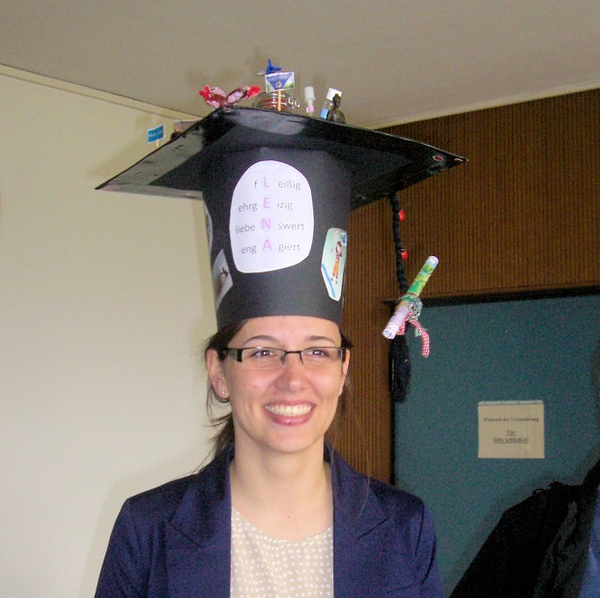
Lena Rohe defended her thesis „Nitrous oxide from fungal denitrification – Pure culture and soil studies using stable isotope and microbial inhibitor approaches“ at Georg-August University of Göttingen, Faculty of Agricultural Sciences on May 14th 2014.
Nitrous oxide (N2O) emissions increased since the beginning of the industrial era. Agriculture contributes largely to anthropogenic sources of N2O, due to fertilizer application on arable soils. Understanding N2O production pathways is needed to evaluate N2O mitigation strategies. The thesis focused on denitrification, a process which describes microbial N2O production in soils. Especially fungal denitrification pathway as well as contribution of fungi on N2O from denitrification in soil was investigated. N2O produced by six fungi was measured in incubation experiments and the isotopic composition of N2O was analyzed. The site specific signature of 15N in N2O (15N site preference = SP) revealed to be a tool to distinguish between N2O produced by bacteria or fungi. Due to an oxygen exchange which occurs during fungal denitrification, a differentiation between N2O produced by bacteria or fungi by using the 18O signature of N2O was impossible. However, a fractionation model showed that the involved enzymes catalyzing the oxygen exchange of bacteria and fungi might differ.
Observations from pure culture experiments should be investigated in soil incubation experiments using microbial growth inhibitors for fungi and bacteria. The expected inhibition was not found in this study. The site specific signature of 15N in N2O indicated that N2O was mainly produced by bacteria of the soil community during denitrification.
The thesis was part of the project “Real-time monitoring of N-species isotopologues by FTIR spectroscopy – A novel tool to investigate short-term isotopic dynamics and N2O formation in soil” and was financially supported by the State of Lower Saxony and the VolkswagenFoundation, Hannover. The experiments with pure fungal cultures were carried out in collaboration with the Max-Planck-Institute for Terrestrial Microbiology in Marburg, Germany.

![[Translate to English:] [Translate to English:]](/media/_processed_/6/4/csm_titel_CO2Kampagne8_afeea2273e.png)
![[Translate to English:] [Translate to English:]](/media/_processed_/4/1/csm_titel_93px_CO2Kampagne8_9b0f3354d4.png)





